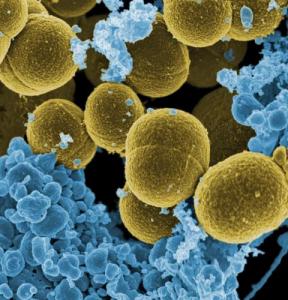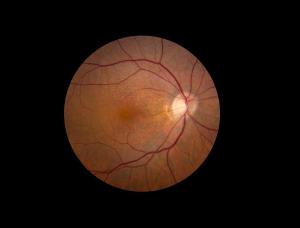U.S. hospitals testing experimental therapies to prevent two common bacterial infections

Scanning electron micrograph of S. aureus bacteria escaping destruction by human white blood...
NIH researchers find a potential treatment for disorders involving excess red blood cells
Researchers at the National Institutes of Health have cured mice with Chuvash polycythemia, a life-threatening disorder that involves the overproduction of red blood cells. They treated the mice using Tempol, an experimental drug being studied for...
NIH launches international study of AMD progression

Fundus photo shows giraffe-like macular pattern in the retina of a person with reticular pseudodrusen
NIH program to accelerate therapies for arthritis, lupus releases first datasets
Datasets characterizing individual cells in rheumatoid arthritis and systemic lupus erythematosus disease tissue from the Accelerating Medicines Partnership for Rheumatoid Arthritis and Systemic Lupus Erythematosus (AMP RA/SLE) Phase I study are now...
PHAT Life: Effective HIV intervention for youth in the criminal justice system
A group risk-reduction intervention that uses role-playing, videos, games, and skill-building exercises to promote knowledge about HIV/AIDS, positive coping, and problem-solving skills for high-risk teens in the juvenile justice system, showed great...
World leaders join new drive to beat noncommunicable diseases
WHO is announcing a new high-level commission on February 16, comprised of heads of state and ministers, leaders in health and development and entrepreneurs. The group will propose bold and innovative solutions to accelerate prevention and control of...
Epilepsy study links mossy brain cells to seizures and memory loss
A small group of cells in the brain can have a big effect on seizures and memory in a mouse model of epilepsy. According to a new study in Science, loss of mossy cells may contribute to convulsive seizures in temporal lobe epilepsy (TLE) as well as...
Individualized, supportive care key to positive childbirth experience, says WHO
WHO has issued new recommendations to establish global care standards for healthy pregnant women and reduce unnecessary medical interventions.
NIH-funded researchers identify risk factors for sleep apnea during pregnancy
Snoring, older age and obesity may increase a pregnant woman’s risk for sleep apnea — or interrupted breathing during sleep — according to researchers funded by the National Institutes of Health. The study, which appears in the American Journal of...
NIH study will assess biomarker as potential indicator of whether lower respiratory tract infections improve with antibacterial treatment
A new clinical trial sponsored by the National Institute of Allergy and Infectious Diseases (NIAID), part of the National Institutes of Health, aims to determine whether low blood levels of the protein procalcitonin can reliably indicate whether a...







